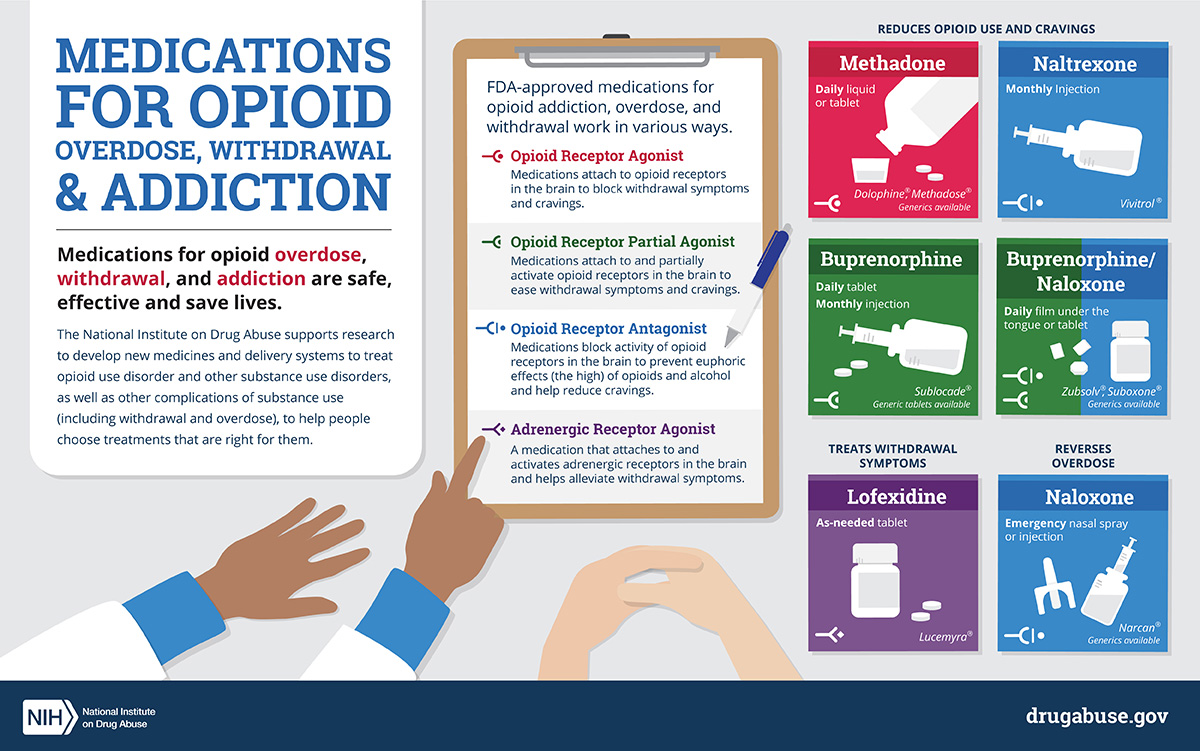Medications for Opioid Overdose, Withdrawal & Addiction

Medications for Opioid Use Disorder Infographic
This infographic shows the different types of medications prescribed for opioid overdose, withdrawal, and addiction.
Medications for opioid overdose, withdrawal, and addiction
Medications for opioid overdose, withdrawal, and addiction are safe, effective and save lives.
The National Institute on Drug Abuse supports research to develop new medicines and delivery systems to treat opioid use disorder and other substance use disorders, as well as other complications of substance use (including withdrawal and overdose), to help people choose treatments that are right for them.
FDA-approved medications for opioid addiction, overdose, and withdrawal work in various ways.
- Opioid Receptor Agonist: Medications attach to opioid receptors in the brain to block withdrawal symptoms and cravings.
- Opioid Receptor Partial Agonist: Medications attach to and partially activate opioid receptors in the brain to ease withdrawal symptoms and cravings.
- Opioid Receptor Antagonist: Medications block activity of opioid receptors in the brain to prevent euphoric effects (the high) of opioids and alcohol and help reduce cravings.
- Adrenergic Receptor Agonist: A medication that attaches to and activates adrenergic receptors in the brain and helps alleviate withdrawal symptoms.
Four cards show medications prescribed to reduce opioid use and cravings.
- Methadone available in daily liquid or tablets. Brand names are Dolophine® and Methadose®. Generics are available.
- Naltrexone available in a monthly injection. Brand name is Vivitrol®
- Buprenorphine available in daily tablet or monthly injection. Brand name is Sublocade®. Generic tablets are available.
- Buprenorphine/Naloxone is available in daily film that dissolves under the tongue or tablet. Brand names are Zubsolv® and Suboxone® and generics are available.
- Lofexidine treats withdrawal symptoms and is a tablet taken as needed. Brand name is Lucemyra®.
- Naloxone reverses overdose and is available as an emergency nasal spray or injection. Brand name is Narcan® and generics are available.
Source: National Institute on Drug Abuse; National Institutes of Health; U.S. Department of Health and Human Services.